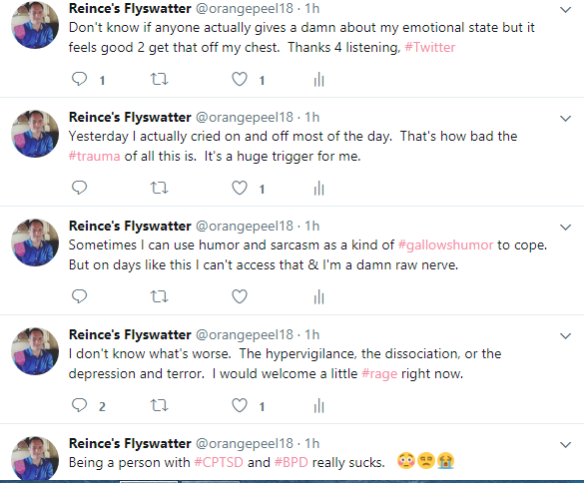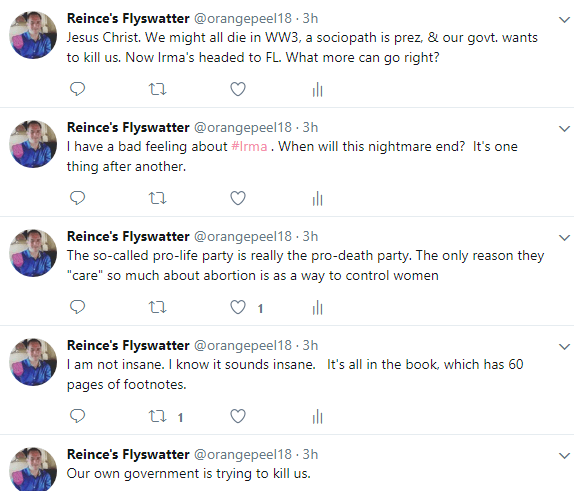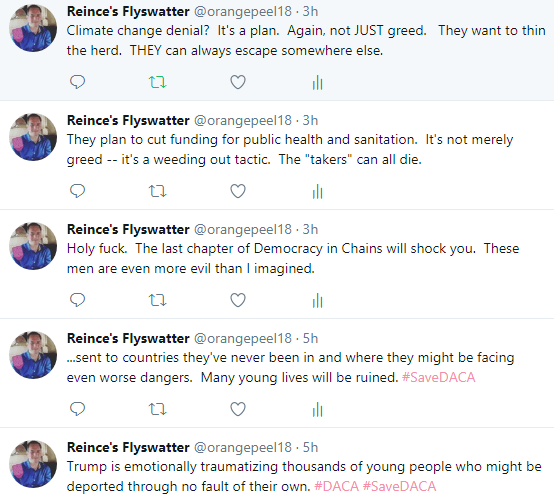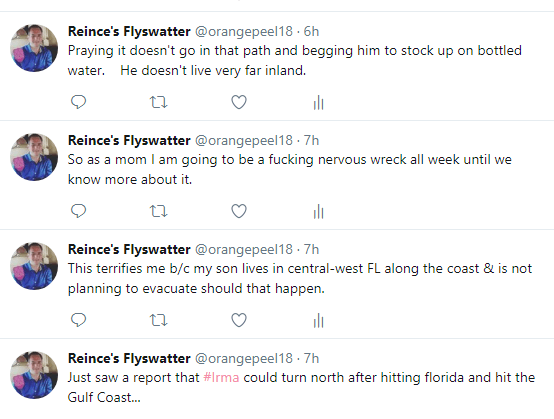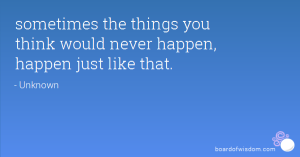
Credit: “Trapped in the Closet,” South Park episode about Scientology.
In Part One, I wrote about how Scientology and the related Dianetics (a “therapy” technique started by science fiction writer L.Ron Hubbard) came into being, and why Scientology is so opposed to psychotherapy or psychiatry and regards Dianetics as a much better “technology” (they actually call it that) to become mentally healthy and happy.
But having had experience with both Dianetic/Scientology auditing (during my two year stint with Scientology back in the late ’70s) and psychotherapy, I’m of the opinion that psychotherapy is much better, in spite of Scientology’s claims to the contrary.
The cost of Scientology auditing.
The first problem (and the most publicized one) with Scientology auditing is the expense. Psychotherapy can also be expensive, but if you have mental health coverage, you may only have to pay a small copay. Even if you have no coverage, many therapists are willing to work with you on a sliding scale. This is up to the individual therapist, and some are strict about their fees, but others, like mine, only charge what the client can afford. For me, that’s $40 a session — or about $160 a month. That’s not a lot more than my utility bills during the winter months.
Scientology/Dianetic auditing prices, on the other hand, are not set by individual practitioners, but by the Church of Scientology itself. Most of the proceeds do not go to the auditors (who actually make practically nothing), but directly to the Church. The prices for auditing are extremely high. The chart below shows that it costs approximately $8,000 for 12 1/2 hours of auditing (I don’t know how old these prices are, but they may be even higher now). In comparison, if an average session with a therapist costs $150 (a fairly high going rate), 12 1/2 hours of therapy would come to only about $1,875. If you want to pay slightly less (but not by a whole lot and in the end, it might prove even more expensive) there is the “training” route up the Bridge. Scientology training requires you to sign up for and prepay for a series of courses, in which you and a “twin” (sort of like the buddy system) take turns auditing yourselves to the next level instead of by a trained auditor. In order to get as many people on the training route as they can (and make new auditors who they don’t have to pay), the first course offered (the HAS, or “communications course”) costs less than $20 at today’s prices. In fact, pricing for the HAS course (Hubbard Apprentice Scientologist) has hardly changed at all since I took it in 1978. For that price, you think you are getting quite a bit for your money. You are trained in “Training Routines” (TR’s) which are fun and seem to help you improve your ability to confront other people and communicate with them, but are actually early indoctrination (brainwashing) procedures.
Very quickly though, the prices for both training and auditing become exorbitant. You will be subjected to a very hard sell by a recruiter, and shamed or even threatened if you refuse (or simply can’t afford to) take the next level to “spiritual enlightenment.” You will be told to take out loans you can never afford to pay back or to manipulate or lie to family members or friends to get the money. Or you can “work off” the expense by becoming a slave to Scientology and devoting all your spare time to it.
In addition to the extremely high prices, there are books, checklists, and tapes you are required to purchase–and none of them are cheap.
Here is a partial list of prices (this is only for one part of the Bridge and does not include books and course materials):
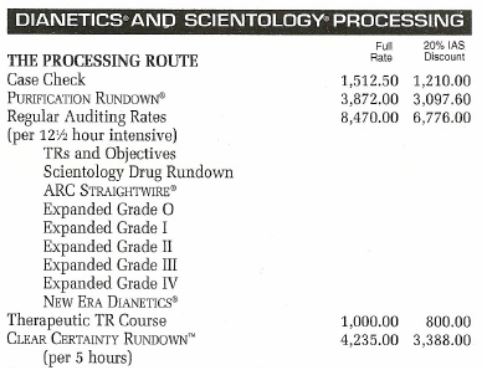
Time theft.
In addition to money, you are also required to sacrifice a significant chunk of your time if you are serious about moving up the Bridge, whether you’ve taken the training or auditing route. Courses can run 4 – 5 hours a night, 5 or 6 days a week, or even more than that, and straight up auditing can eat up even more of your time, since an auditor is not allowed to end a session until a “preclear” (person getting auditing who is not yet Clear) has a “cognition” (realization). If a preclear is “enturbulated” (triggered), an auditor cannot end a session, even if it means a session must run all night, or for hours at a stretch. No breaks are allowed for either the auditor or the preclear, not even to eat or sleep.
Also, if you don’t achieve the expected End Phenomena (EP) in the amount of time set for that particular auditing procedure, you will be required to hand over even more money for additional hours of auditing to achieve that particular EP. For example, the first step up the bridge on the auditing route is an auditing procedure called “Life Repair,” which is supposed to bring a preclear to the EP within 12 1/2 hours. But because people aren’t machines, some people may take more time to get to the EP, and will be required to pay for additional hours of auditing to achieve the EP, at non-discounted prices.
Such a time allotment makes it impossible for people to work at another job or have a life outside Scientology, and this is, of course, intentional. With most of your time and all your money now devoted to the Church of Scientology, they effectively own you, which makes indoctrinating you and reprogramming your mind all that much easier.
One-size-fits-all.

It doesn’t seem coincidental that Scientology auditing is called “processing” and the auditing procedures are called “tech.” People are treated as if they’re machines. A one-size-fits-all method is employed, with the auditor basically using a script of set commands or questions invented by Scientology’s founder, L. Ron Hubbard, rather than a free give and take exchange of experiences and memories that is used in traditional psychotherapy. No variations or changes to the script are allowed. If an auditor makes any changes to the “tech” at all or tries to adapt it to the individual, they are considered to be “squirrelling,” which is one of the worst “sins” a Scientologist can commit.
The EP is also a set “cognition” that cannot vary. In the early stages of “processing,” the EP is usually something related to needing more auditing or training to achieve enlightenment. For example, in Life Repair, the expected EP is “preclear realizes that Scientology works.” While the preclear may claim to feel somewhat better, their life is far from repaired — and may be about to get a whole lot worse! In ARC Straightwire auditing, the expected EP is “realizes they will not get any worse.” (When will they get any better? That requires more auditing, of course!) But the auditor isn’t allowed to give the preclear any hints of what the cognition needs to be. Obviously, failing to get to that cognition will require many additional hours of auditing, which allows Scientology to completely exploit you financially, with few actual results being achieved. It’s a mindfuck of epic proportions.

The preclear is connected to an E-meter (a lie detector type of device that measures galvanic skin response) at the end of each session, and cannot be “passed” until they get a “floating needle.” If they do not get a floating needle, the auditor and preclear must immediately resume the session until a floating needle is achieved. This can be frustrating and exhausting for both. In my last post about my own experience, I described becoming so run down from lack of sleep and hunger that I started crying while auditing a fellow student, and got sent to Ethics and shunned until I fulfilled their Conditions by performing certain actions to get me back in good graces with the church (showing “case” [negative emotions] on post is strictly forbidden).
In traditional psychotherapy, there isn’t a set “cognition” or EP that a patient must achieve. The end result of therapy is a general improvement in the ability to cope with life and feel better about yourself, not a particular set of words that must be said. You also can’t pass or fail, because results vary according to the person and the techniques used by the therapist are tailored for that particular individual. Therapists aren’t reading from a script, as they are in auditing. There also isn’t a certain amount of time that is set in advance to achieve a particular result, which can cause both preclear and auditor an enormous amount of undue stress.
Lack of qualification requirements.
In Scientology, if you have the money and time, you can become a “professional auditor” in just a few months of training. While there are definitely many bad therapists who are not at all suited to be working with patients, they are required to have at least a master’s degree and have spent many hours practicing in simulated sessions before being given the green light to set up practice and work with actual clients. In Scientology, no degree is required, just a certificate that you passed an auditing class. An auditor doesn’t even have to be an adult. In many Scientology families, even children as young as 10 or 11 can audit others after they have passed an auditing course.
Empathy as a liability.

Empathy is not required; in fact, in Scientology, empathy (Sympathy on the Tone Scale) is considered “low toned” and is associated with someone who is ruled by their reactive mind. Auditing and training removes any trace of empathy or concern for others. Any show of empathy or sympathy for a preclear can result in a dreaded trip to “Ethics,” so even if an auditor feels empathy for their preclear, they are not allowed to let anyone know and must not let the E-meter detect it. People with narcissistic or sociopathic personalities tend to stick with Scientology and be the ones to rise the farthest in the organization, and for those who have progressed up the Bridge to the Clear and OT levels, there is a shocking lack of empathy and a forced “happiness” accompanied by the infamous blank Scientology stare.
Besides empathy, showing real emotions other than happiness or contentment (except while being audited) is considered “aberrated” or “showing case” or “bank” (reactive mind) and you can be punished for it in various ways, including shunning and even excommunication. If a false self is present to begin with (as it is in narcissistic people), its further development is bolstered and rewarded. People who possess empathy and express authentic emotions are either brainwashed or shamed out of them, or they eventually leave the organization.
In psychotherapy, empathy is usually a desired (though not required) characteristic of a therapist. All good therapists have it. Therapists who possess empathy for their clients are usually the most successful and their patients are the most likely to get well. The goal of therapy is usually to help a patient own and be able to better express their real emotions, not deny them or cut themselves off from feeling them.
Auditing is disguised brainwashing.

The above quote by L. Ron Hubbard pretty much says it all. In Scientology (and all sociopathic groups and organizations), language is often used this way, to manipulate people into believing something bad is really something good, or to convince them to engage in activities they would otherwise never engage in.
The methods used in auditing — set commands, endless repetition, rote questions, no allowance made for free exchange of ideas or real conversation, and a requirement to “pass” each session — are really methods of mind control. There’s a beginning form of auditing called TR’s (training routines) that is introduced in the Communications course. TR1 involves sitting for hours staring at a fellow student, and not being passed until you can sit there and show no reaction at all. A later TR, called “bullbaiting” ups the ante so that you don’t react even if insults are thrown at you or your fellow student tries to make you laugh or lose your blank stare. Later TR’s involve repetitive actions like walking across the room, touching things, and doing the same mindless actions over and over. This sets up a preclear for feelings of dissociation, which aren’t recognized by Scientology as being dissociation.
The processes conducted in auditing are really a form of hypnotic suggestion, and are intended to send the preclear into a “reverie” which is really a euphemism for the hypnotic state (Hubbard was extremely opposed to hypnosis, even though hypnosis is exactly what Dianetics processing does). It’s not uncommon for a preclear to panic or fall asleep during an auditing session. Unfortunately, auditors (especially student auditors taking the course route) are often pathetically untrained and lack any skills to handle an emergency situation or deal with a preclear who keeps falling asleep.
There’s a phenomenon called “exteriorization,” which is Scientology’s term for being out of your body, a much-desired result. In contrast, the mental health field recognizes feeling exterior from your body as a form of dissociation (specifically, depersonalization) and it’s definitely not something you want to work toward. I remember once, after hours of TR1, feeling very dissociated and I became pretty freaked out. I started to experience a panic attack, but fearing judgment for “showing case” in class and being connected to the E-meter made me try to hide my panic, which I can assure you wasn’t easy. I had to keep staring at the other person and somehow talk myself down while showing no reaction.
Some people, however, enjoy the feeling of exteriorization. They say it makes them feel high or euphoric. That wasn’t the case with me, but many people who enjoy that feeling are encouraged to keep working toward attaining the upper levels (OT levels) where you are “exterior” to your body most or all of the time. Being constantly dissociated is the normal and desired state of someone who has achieved a high level in Scientology auditing, and is also common in ritual abuse and mind control. No wonder so many upper level Scientologists act so strange!
The Purification Rundown.
There’s a required step early on the way to Clear called the Purification Rundown, which is probably the most dangerous of all the Scientology processes (it’s also used in Scientology’s drug rehab program, Narconon). While on the Rundown, you are required to take massive doses of vitamins, including Niacin (which is toxic in high doses), and spend 5 hours a day in a sauna, sweating out impurities caused by drugs (both legal and illegal) you have taken during your life (Scientology is extremely anti-drug and that’s one of their major criticisms of psychiatry). Hubbard believed that all drugs are stored in the fat cells, even drugs such as LSD which have been proven by medical science to be water soluble.
People undergoing the Purification Rundown literally become run down and many wind up very ill. Several have died of kidney or heart failure . The Purification Rundown was invented by Hubbard, who was not a doctor and had no medical training. His ideas about massive doses of niacin and other vitamins was based on his half baked theories about radiation sickness and the idea that vitamins, especially niacin, could cure it.
Of course, if you become ill, it’s because of your engrams being retriggered as a result of the process, not because of the process itself. Due to the high doses of vitamins and depletion of vital minerals and dehydration resulting from the constant sweating, many people attain a euphoric and dissociated state of mind that leaves them vulnerable to further mind control.
Conclusion.
In Scientology, you are required to act a certain way, think a certain way (or those “missed withholds” will be found out by the E-meter), and give so much of your time, energy, and money to the organization that you pretty much have no life left. Without a regular job anymore (because you’re spending all your time working for free for “course credits” or even living on-base at a place like Sea Org), no remaining family or friends (who you may have been required to “disconnect” with if they opposed Scientology or your involvement in it), no money, and no outside interests (because outside interests might interfere with your progression up the Bridge), they effectively own you. You think you’re giving yourself willingly to the organization for your own enlightenment (and that’s what they promise you when you sign up), but nothing could be further from the truth. The process of indoctrination and spiritual destruction is so insidious you may not notice what has happened until it’s too late — if you ever do at all. If you want to feel better about yourself and your life, see a regular therapist or pray for guidance — stay far away from this bogus form of “therapy” that can be so seductive at first.
*****
Further reading:
My Love Affair With Scientology





